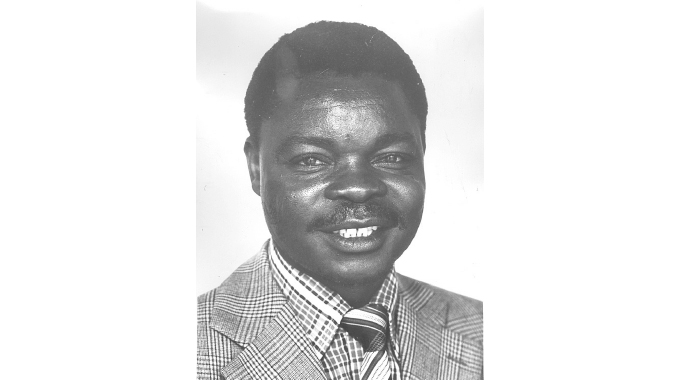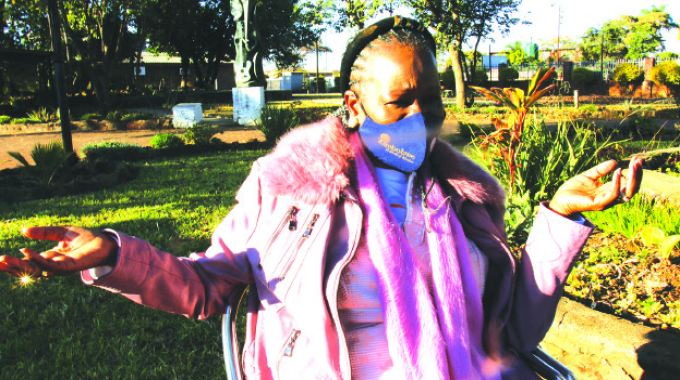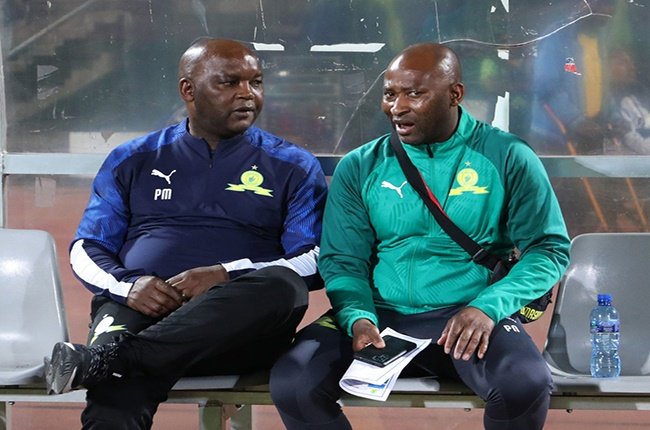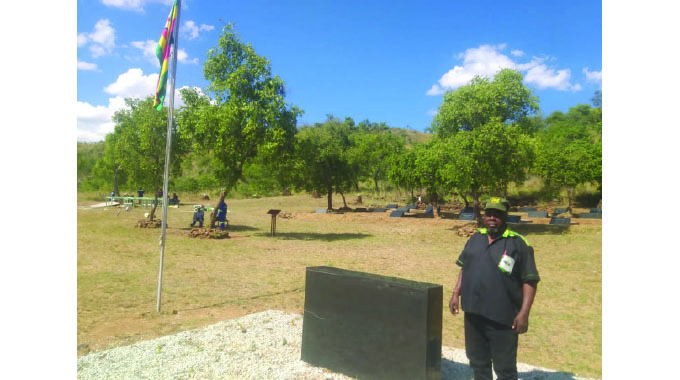Mayor Urimbo: One of Zimbabwe’s great sons

Walter Muchinguri-Senior Researcher (Zimpapers Knowledge Centre)
Samuel Mamutse, popularly known by his nom de guerre Mayor Urimbo, was a veteran freedom fighter and pioneer of the Zimbabwe African National Liberation Army (Zanla).
He died at the Parirenyatwa Group of Hospitals on September 7, 1993 and was buried at the National Heroes Acre on September 11.
The late veteran ZANLA commander and Zanu-PF Politburo member’s political leadership was characterised by simplicity and an ability to mix freely with the rank and file of the party’s membership while retaining their complete respect.
His wit and charisma earned him the title “Mutupo weZanu” (the soul of the party) during the liberation war.
The celebrated late freedom fighter was born on June 12, 1939 in Gutu, Masvingo Province. He was the second born in a family of eight.
He attended Whete Primary School from 1951 to 1957.
After completing his primary education, Cde Urimbo proceeded to Gutu Mission for his secondary education.
After school, he was employed by BAT as a machine operator and had his first brush with politics when the tobacco company transferred him to Zambia as an instructor.
In Zambia he joined the United National Independence Party that was fighting for Zambia’s sovereignty at the time.
He then joined ZANU at its inception in 1963 as a member of its youth wing. In the late 1960s he was conscripted into ZANLA and was trained in the fourth intake at Itumbi camp in Tanzania.
Among the fighters in that intake was the late Zimbabwe National Army commander and national hero, General Vitalis Zvinavashe.
He was among the first four ZANLA guerrillas sent to join FRELIMO in the Tete Province in mid-July 1970.
Others were Justin Chauke, Cornelius Mpofu and Shumba, the only member of the group that was killed during the war.
Five years after he went to Tanzania for military training and upon his return to Zambia, Cde Urimbo led clandestine reconnaissance operations involving the ferrying of weapons to Mt Darwin and Mavuradonha areas.
The role required courage and tactic. Cde Urimbo used his natural wit and courage to create a good understanding with the Korekore people in the area.
The villagers managed to hide his unit as Cde Urimbo swam from one area to the other, while ferrying weapons.
The success of his reconnaissance missions paved the way for the successful north-eastern offensive, which started in December 1972.
When the ZANU leadership concluded an agreement with FRELIMO to use their own liberated zone of Tete province across the border, ZANLA the work was made much lighter.
Cde Urimbo and his unit were able to move their base nearer the target area of north-eastern Rhodesia.
He was promoted to the rank of commander for Tete province and took direct charge of ferrying arms and ammunition across the border under the general direction of the late ZANLA commander and national hero General Josiah Magama Tongogara.
Cde Urimbo and his team attacked Altena farm on Christmas Day in 1972, which stoked the flames of a protracted liberation struggle that ended with the country’s independence.
He was among the few guerrillas who opened the north-eastern front together with Cdes Justin Chauke, Sheba Gava (Vitalis Zvinavashe), Patrick Mupunzarima, Josiah Chinamaropa, Ernest Kadungure, Peter Baya Chihota, Joseph Chimurenga, John Zende, Fred Kurauone, Gideon Kuzvipa and others.
One of the major tasks they performed was the transfer of the spirit medium — the late Mbuya Nehanda, from Mavuradonha to Tete province in Mozambique.
At the historic Chimoio Central Committee meeting in 1977, Cde Urimbo was elected to the influential position of National Political Commissar and was instrumental in mobilising and recruiting thousands of young men and women who crossed into Mozambique to join the war.
He also masterminded the storming and breaking down of colonialists’ institutions and the establishment of liberated zones.
At Independence, Cde Urimbo joined Parliament under the Lancaster House Constitution of proportional representation and later became Member of Parliament for Ndanga/Zimuto when the concept of a unicameral parliament was introduced in 1985.
He was elected into the Zanu-PF Central Committee during the party’s congresses in 1984 and 1989, respectively.
In August 1985, Cde Urimbo had white MPs and Hansard reporters scrambling for translation devices when he became the first parliamentarian in the Lower House to debate in a local language.
This was after the use of Shona and Ndebele had been introduced at the opening of Parliament the previous month. In September 1985, Cde Urimbo was promoted to the Politburo as a committee member, taking over from Dr Sydney Sekeramayi who had been appointed Secretary for Transport and Social Welfare.
In 1990 he was forced to give it up his parliamentary seat due to ill-health. At the time of his death, he was survived by his wife and eight children.
Members of Parliament paid special tribute to the role that Cde Urimbo played during the liberation struggle, and in post-independent Zimbabwe.
Ex-Mpopoma MP Cde Edson Ncube described the revolutionary hero as one of “Zimbabwe’s great sons”.
“He knew he had an obligation to liberate everybody in Zimbabwe. It seems we are forgetting that Zimbabwe is an independent state because of the sacrifice of some people”, said Cde Ncube.
Former Harare East legislator Cde Margaret Dongo described Cde Urimbo as “a mother” to the party, while Harare North legislator Cde Tirivanhu Mudariki, said Cde Urimbo was above corruption and had chosen to live a modest life, unlike some of the leaders who were flamboyant. (The Herald, September 17, 1993)
Full story on www.herald.co.zw
Cde Urimbo’s death also sparked controversy among his comrades-in-arms who argued that a man like Cde Urimbo, who was in the forefront fighting for the liberation of the country should not have died a “pauper”.
Contributing to debate in Parliament on Cde Urimbo’s death and the alleged neglect by the party, then Minster of Justice, Legal and Parliamentary Affairs and now President, Cde Emmerson Mnangagwa, gave a glowing description of the late national hero.
He said Cde Urimbo was consistent in principle, a commander, peacemaker, father and comforter of many, a Commissar, a campaigner and a champion of freedom who had gone to war expecting no reward.
Turning to the assistance rendered by the party, Cde Mnangagwa said the party had helped him buy a house in Alexandra Park where the late hero stayed from 1981 to 1987 without paying any bills, with the party even buying him furniture, but he later sold the house at a nominal price.
Cde Mnangagwa told legislators that until the time of his death, the revolutionary hero had a party car and a driver, both of which were still being used by his widow.
He also told the House that “giving such detail is not always necessary, but to set the record straight. We did everything possible and it’s a lie that he was neglected.” (The Herald, October 1, 1993; The Sunday Mail, October 3, 1993)
Source: A Guide to the Heroes Acre: Some Basic Facts about Zimbabwe’s Heroes and the Heroes Acre.







Comments